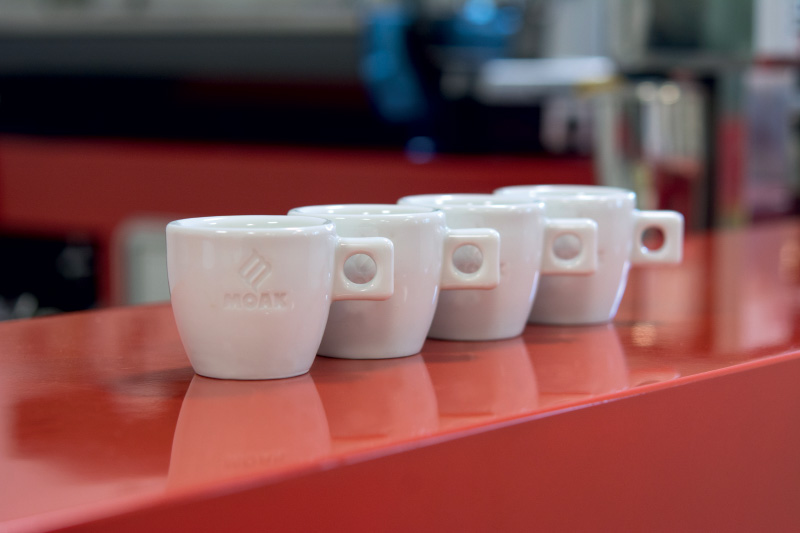DNA tells u show many coffees per day we can drink. The discovery comes from Boston, thanks to a recent study carried out by a ground of researchers of Harvard University. A result that reveals why some individuals take in more caffeine compared to others, and why some people are not affected in their night sleep when drinking coffee after dinner, while others would have a sleepless night. It is therefore a genetic predisposition, which will help to determine maximum and minimum quantities of coffee each person can take per day, and thus benefit from consumption increase or reduction, in order to improve health. Professor Giuseppe Novelli, professor of Genetics at the Faculty of Medicine of the University of Rome Tor Vergata explains it better.

Prof. Giuseppe Novelli
How was is discovered?
About 90% of men and women in our planet consume caffeine every day. It is therefore important to understand how our organism metabolises this substance, and above all if the effects are equal in all people or, as I notice after all, if there are individual differences. Actually, the study allowed to understand why some people feel the need to take in caffeine more times per day, while other only once per day, along with the positive and negative reactions that this involves on each individual.
Is caffeine intolerance also connected to a genetic factor?
I wouldn’t call it intolerance, but rather low or quick capacity to metabolise taken caffeine. Indeed, the difference lies in the fact, how quick the liver is to eliminate caffeine and thus its derivatives within a certain period. This time is given by the single genetic variability in the gene CYP1A2, which produces and important enzyme in the metabolism of caffeine. Some people (about 10% of the population, fast metabolizers) have a variation in this gene that allows them to eliminate caffeine faster, so they can easily drink at least 400 ml caffeine per day without any particular problems. Instead, other people with other variations (slow metabolizers) consume less caffeine per day because of this. Moreover, the research highlighted that there are at least 6 other genes regulating the consumption of caffeine, besides CYP1A2 (AHR, POR, ABCG2, BDNF, SLC6A4, GCKR, MLXIPL). It is interesting to notice that some of these are active in the metabolism of sugars and fats, and had never been connected to the consumption of caffeine.
So how does a person know if and how many coffees he/she can drink per day? Is there a genetic test or is a simple appropriate check-up fine?
Through a simple genetic test, one can establish each single person’s capacity of effectively metabolising caffeine taken in the organism on a daily basis. In my opinion, carrying out such a test shall not just be used to understand how much coffee you can take per day, but for a general medical evaluation in people at risk of cardiovascular diseases. In fact, it is well known that slow metabolisers taking more than three coffees per day have a higher risk of having a heart attack. This becomes even more important, if the subject is a smoker. In this case, risk is doubled.
What are the benefits of such discovery?
Identifying slow metabolising subjects in categories at risk can be important to prevent acute episodes in the coronary diseases, and also to foresee effects of some very important medicines (pharmacogenetics) in cardiovascular therapies that depend on the same genes involved in the consumption of caffeine.


Recommended song for the reading of the present article: Cat dna – Ozric Tentacles

